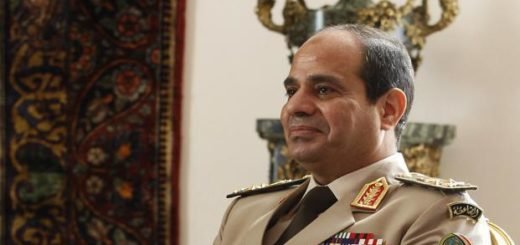Discussing the possibilities of Iran-Israel skirmishes
I think the more precise phrase about the tenth of February was the Israeli attack on Syrian military rule. In fact, there was no “conflict” between the Israeli army and the Iranian military – Sajjad Abedi*
An unmanned drone belonging to the Syrian army was fired in the occupied territories by the Israeli regime and, on the other hand, some Israeli airmen and fighter jets, in the Syrian territory, while intimidating and bombing some Syrian bases, On escaping, the Syrian air defense system was prosecuted, and a Phantom series of sixteen Israeli army’s was abandoned by the Syrian air defense unit.
Indeed, this was a very important event because an Israeli Phantom fighter was, firstly, not a record for the past thirty-five years, secondly, earlier, when the Israeli army was attempting to attack and bombard some areas of Syria. The Syrian army had warned that, if repeated, the attack would be effective.
The Israeli Army was willing to cover Iran’s name with the name of Iran in its own way, and, at the same time, to try to claim the presence of a direct military presence (rather than advocacy) of Iran along the borders of Syria With the occupied territories.
So, basically, the military conflict between Israel and Iran did not occur in Syria.
Is it possible to extend the scope of the conflict between Iran and Israel beyond the borders of Syria?
Israel is a propaganda regime. Remember that from the time of the victory of the revolution and through the imposed war, so far, Israel has repeatedly threatened to bring military action.
The peaks of these threats are when you remember the occupation of southern Lebanon in the early eighties and again during the deadlock of the nuclear talks at the end of the tenth government, 2010 and 2011.
Especially in 2011, many times the Jewish government, with an excuse of making our nuclear advances on the one hand, and the lack of progress in negotiations with the world powers, on the other hand, even posed a plan of bombardment and their alleged military action, but whoever did not recall In the 33-day war in July 2006, Israel did not even reach the Lebanese Hezbollah semi-guerrilla and semi-guerrilla forces? Also, who is forgotten? The Memory of the defeat and the departure of Israel from southern Lebanon are after about two decades of occupation, against the resistance of the Islamic Republic of Lebanon.
At the same time, the Israeli regime is also a regime of war and aggression. The principle of forging this regime was based on the hostility of the Palestinian territories, even before the announcement of the end of the British mandate to Palestine. This is a mere military aggression regime. However, the capacities of this regime are subject to specific cultural and psychological and strategic characteristics and constraints. The image of these restrictions can be seen in examining the history of the battles of this regime. The two most important elements have been continuously contributing to the wars of this regime: first, comprehensive support for intelligence and operational support of the regime’s supporter powers, and, secondly, the domination of the weaknesses and disparities between the opposing armies. Of course, the psychological and operational structure of the Israeli army is based largely on the militant war. Therefore, one of the basic weak points of the Israeli army is the prolongation and expansion of the battlefield. The best examples of these features can be found in the comparison of the 1967 Six-Day War with the 2006 War of 33 Days.
According to what was said, firstly, there is still no conflict between the Iranian military and the Tel Aviv. Second, the basis of these two goals has put propaganda and on psychological operations. However, what makes this regime think more about engagement with Islamic Republic of Iran is the ability to retaliate and deterrent in the second blow that comes from Iran.
Considering Netanyahu being from an extremist right-wing Israeli party, is there a consensus in Israel over the conflict with Iran? Is the war with Iran in the near future on the agenda of this regime or seeking to create tensions smaller and Multiple with Iran in the region?
Understand that the strategic decisions of the Israeli regime are subject to the prevailing course of action, and ultimately the “miniature government” or, in other words, the Israeli Security Council.
In recent times, we have witnessed two security trends by the Israeli regime. In the first trend, the Israeli government immediately and officially reported through Moscow after the collapse of one of its aggressive planes in Syria, which, according to Tel Aviv, ended, and the conflict, whatever, ended. Along with that, messages sent by some European governments to Iranian diplomats (including through Paris), which signaled a threat to retaliation against Iran’s military presence on the occupied Palestinian borders.
The US Secretary of State also described Iran as part of the US National Security Strategy in mid January as a source of insecurity in the region and a strategic threat, and to expel Iran from the West and bring Iran back to its borders for US goals. Counted (Rex Tillerson, Hoover Think-Tank, Stanford University, January 17, 2018)
The issue of Iran, though it is considered as one of the basic priorities of the national security of the Israeli regime, can never be said that the war with Iran is also considered a priority of this regime.
At two stages, the most likely occurrence of conflict between the Israeli regime and Iran has been present. One at the time, George Bush II and in the middle east of the Second Gulf War, and the other in a deadlock in the nuclear talks in Ahmadinejad’s second government.
Perhaps, in the current situation, the Israeli regime is most likely to have a “collective war” against Iran. Perhaps the strategic bottlenecks outside the occupied territories, and the increase of the influence of Iran in the region, as well as the sensitive conditions of the interior of Iran, are the three most important factors in this tendency.
The Israeli regime knows that the beginning of any conflict with Iran may be triggered by Israel, but it will determine the other, the time and the fate of the battle.
Any kind of conflict, whether small or large, with Iran, will threaten the biggest conflict for the Israeli regime.
The central goal of Israel is to ensure its domination of the regional environment and the return of Iran to its national borders. This goal, as long as it is provided in non-war ways, does not allow Israel to engage in conflict. The presence of Iran on the Syrian borders with the Israeli regime has exasperated Israel’s extreme sensitivity. Israel allows anything to keep Iran away from its borders. But, the risk of conflict at any price is not accepted.

The Golan Heights in south-western Syria | Image: Daily Mail
Israeli officials have repeatedly stated that they will not tolerate the presence of Iran in the region. Will be the short-term and long-term plans of Israel to confront Iran in Syria?
Increasing international pressures, tightening the environment, and tightening the conditions for Iran to continue to exist in Syria, Lebanon and Iraq, increasing Iran’s environmental threats, such as engaging Iran with domestic threats, placing Iran in sanctions bottlenecks and increasing regional threats through its skirts The Iranian security and geopolitical contradictions with its Arab and non-Arab neighbors are among the goals and plans of the Israeli regime to control Iran’s problem.
The military conflict is considered to be the most costly and dangerous and, most certainly, the far-fetched possibility of controlling the “problem” of Iran by the Israeli regime.
Engaging Iran with the issue of terrorism in the periphery and moving Iran from the front line is an Israeli tactical approach. In the strategy, the system is a long-term goal of Israel.
The return of the sanctions and the growing conflict between Iran and the United States and the involvement of Iran in the political conflicts of security in the region and beyond the region are the current plans of Israel.
The escalation of the socio-economic political crisis in the interior of Iran is the current agenda of Israel over Iran.
At this stage, Israel bursts more than bites. Netanyahu in Munich threatened to take action. The Action against is in the practice that Iran did not intervene. The F-16 airliner was defeated by Syria’s air defenses. The Islamic Republic of Iran does not recognize the strategic imbalance in favor of Israel. Israeli airlift and Israel’s fear of threats from its peripheral environment are a rejection of the strategic imbalance in favor of Israel.
If the “imbalance of security” is assumed to be in the strategic environment of Israel, this imbalance will certainly not be in the interest of the Israeli regime.

*Sajad Abedi a Resident Research Fellow at the National Security and Defense Think Tank, Iran. He holds Ph. D. degree in National Security from the National Defense University under the Group of Leader of the Islamic Republic of Iran.
His research interests pertain to Arab-Israeli studies, the Cyber Security studies and National Security.
The views and opinions expressed in this article are those of the authors and do not necessarily reflect the views of The Kootneeti Team.


















